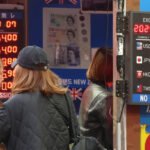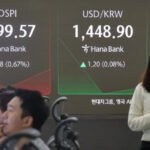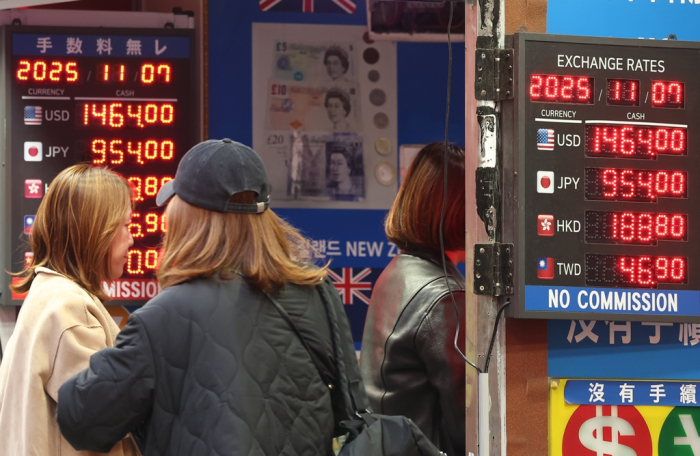
The Korean currency tumbled past 1,450 won to the dollar on Friday as renewed risk aversion triggered by signs of a slowdown in the US jobs market compounded concerns over Korea’s $350 billion US investment package as part of the Seoul-Washington tariff deal.
The won finished at a seven-month low of 1,456.9 per dollar in Seoul’s onshore market, down 9.2 won from the previous day’s close.
The currency opened at 1,448.1 won and steadily declined through the session, touching an intraday low of 1,458.5.
The level marks the weakest close since April 9, when the dollar-won rate hit 1,484.1 amid escalating US-China tensions.
Traders said Seoul’s foreign exchange market was rattled by fresh data from US employment consulting firm Challenger, Gray & Christmas, which showed that US companies announced 153,074 job cuts in October – the highest October figure since 2003.
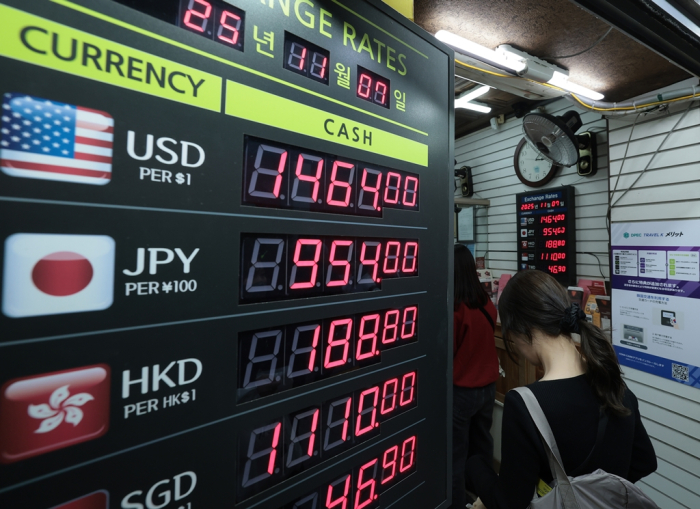
The report stoked fears that the world’s largest economy is losing momentum, prompting a flight from risk-sensitive assets such as the won.
Sentiment was further undermined by renewed debate over a potential “AI bubble” and a rekindling of geopolitical friction between Washington and Beijing, as well as signs of fragility in the US labor market.
FOREIGNERS SELL KOREAN STOCKS TO BOOK PROFITS
The won also came under pressure as foreign investors extended their retreat from Korean equities for a fifth consecutive session, selling a net 479.1 billion won ($329 million) worth of shares on the main bourse.
The benchmark Kospi index fell 1.81% to close at 3,953.76, its sharpest daily decline in nearly two months.
The tech-heavy Kosdaq market declined for a third straight session, with its key index falling 2.38% to close at 876.81.
Analysts said foreigners are also on a selling spree to book gains from their investment in Korean equities.
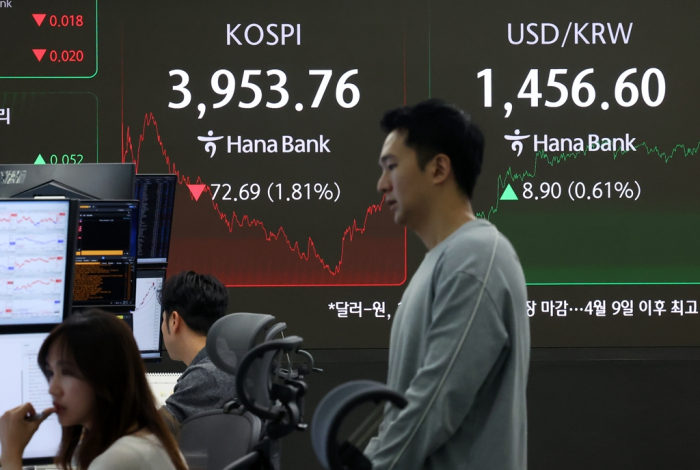
“The won has no clear support factors at the moment,” said a Seoul-based currency trader. “Every global risk headline and every bit of dollar strength is being amplified by the structural outflow pressure from Korean investors.”
Analysts warned that the currency’s weakness may prove more persistent than in past episodes.
Korea’s ongoing surge in overseas investment, including a government plan to channel up to $20 billion a year into US assets, has raised structural concerns about dollar demand outstripping supply.
“Between corporate investment abroad, retail flows into US stocks and foreign selling of Korean equities, the underlying demand for dollars remains strong,” said Moon Da-un, a Korea Investment & Securities analyst. “The (FX) market could easily test 1,480 in the near term.”
1,400 WON/DOLLAR RANGE: NEW NORMAL?
With no imminent catalyst for a rebound, coupled with the dollar buoyed by safe-haven demand, traders now fear the 1,400 level may be settling in as the new normal for Korea, Asia’s fourth-largest economy.
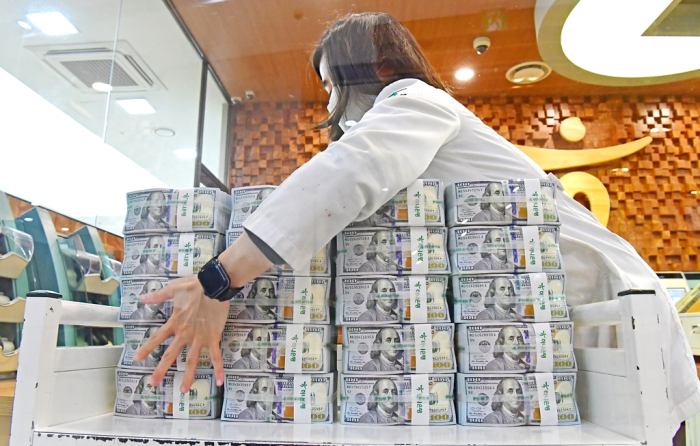
Analysts said that as Korean companies increase their overseas investments, there is also a growing tendency to hold on to export proceeds in dollars rather than converting them into won.
“Since expectations of a weaker won have become entrenched, exporters’ demand to sell dollars appears to have weakened,” said Korea Investment analyst Moon.
Seoul’s pledge to spend $20 billion in annual US investments is also seen as a burden on the foreign exchange market.
1,500 POSSIBLE BY YEAR-END
Although the government and monetary authorities, including the Bank of Korea, said that there will be no impact because the funds will be raised through overseas dividends and interest income, some industry watchers disagree.
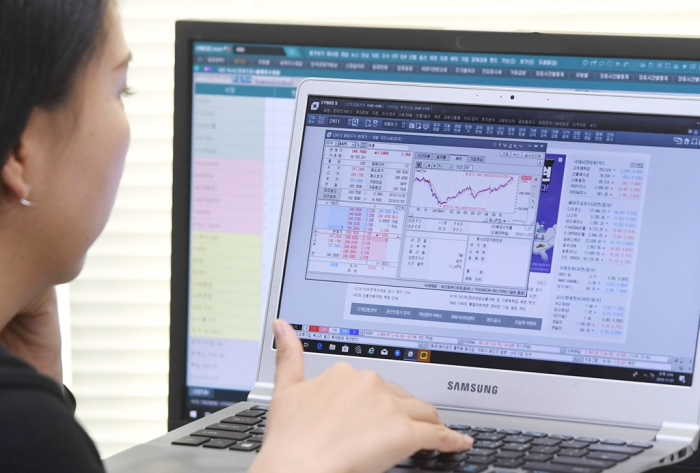
Lee Yoon-soo, an economics professor at Sogang University, said, “Because the funds to be set aside as foreign reserves are being invested in the US, it effectively reduces the authorities’ capacity to intervene, when necessary, in the currency market.”
Experts expect the won to weaken further in the near term.
“The exchange rate could reach 1,500 by year-end,” said Park Hyung-jung, an economist at Woori Bank. “Decision-making should be based on the assumption that the won will remain at this elevated level for some time.”


